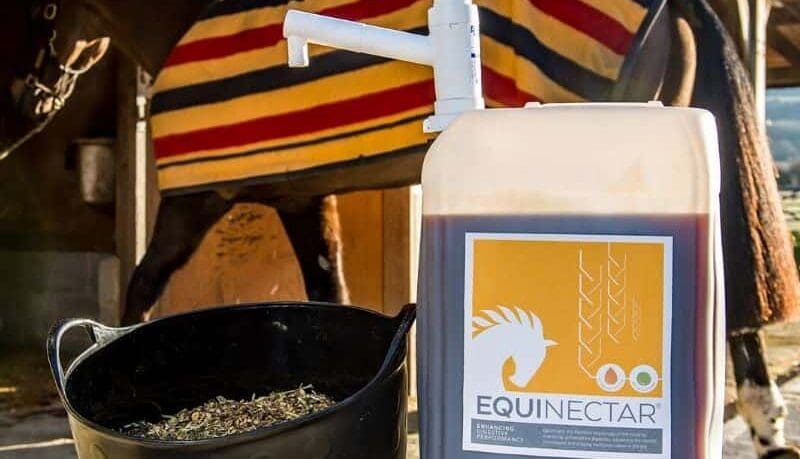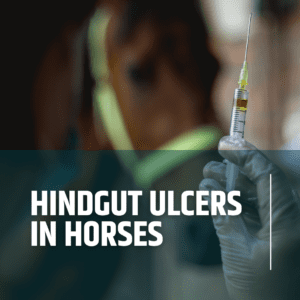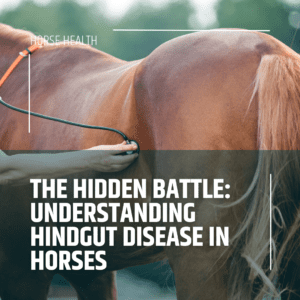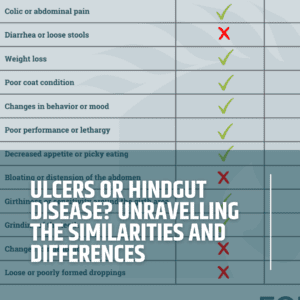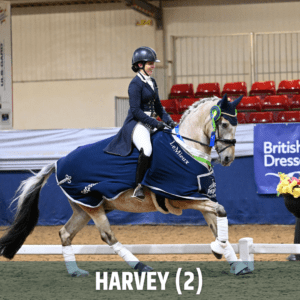
By Ben Nedas
Chief Commercial Officer
Spring's Green Peril: Navigating the Risks of Lush Grass and Colic in Horses
01
Introduction
Spring is a season of renewal and growth, bursting forth with vibrant colours, fresh scents, and the promise of warmer days ahead. It's a time when horse owners eagerly anticipate getting back into the saddle, enjoying rides through the countryside, and witnessing their beloved animals bask in the sun-drenched pastures. However, as captivating and invigorating as spring may be, it also presents hidden dangers to horses, both in terms of risks of laminitis and colic from the sudden flush of new grass.
In this blog post, we will discuss the details of how sugars, such as fructans, are broken down in the intestines and how this can go wrong and, in some cases, lead to colic. By understanding these challenges, horse owners can limit the risks to their horses' health.
02
When to pay most attention
Fructose is the sugar formed by plants, and is abundant in fruits as readily digestible energy substrates. Fructans are long chains of these simple sugar molecules that plants use as a long term energy store. As days lengthen and temperatures rise, photosynthesis accelerates, and grasses produce more fructans that are stored for growth later in the plant's growth cycle.
As a result, fructan concentrations can become particularly high in the grass at this time of year, especially on a bright early morning following a cold night and on wet spring days during the late afternoon and early evening hours.
03
What happens when a horse eats fructan rich grass?
Individual fructose molecules are readily digested and absorbed by the small intestines, however fructans are resistant to these digestive mechanisms in the small intestine and can only be digested by the intestinal microbiome in the large intestine and caecum. When horses ingest large amounts of fructans, they largely pass into the caecum and large intestine, resulting in fermentation. Some of the by-products of this microbial digestion, as many will know, are gasses!
Gas accumulation in the hind-gut can lead to distension and bloating, causing pain as a direct result of this gas accumulation, known as tympanic colic.
In severe cases, gas accumulation can allow the intestines to move around the abdomen, causing a type of colic known as a displacement. Displacements of the large intestine can often be managed conservatively, but may require surgical intervention in some cases. Rapid microbial fermentation also lowers the pH, causing a more acidic environment that can lead to hindgut acidosis, intestinal inflammation and leaky bowels.
Could EquiNectar help reduce some of the issues with spring grass?
04
EquiNectar could potentially help a horse deal with spring grass by supporting optimal digestive function and promoting a healthy gut environment. The benefits of EquiNectar may include:
- Enhanced capacity to digest fructans. EquiNectar contains fructanase, an enzyme that helps break down fructans, reducing their potential negative impact on the horse's digestive system.
- Enhanced nutrient absorption: EquiNectar may aid in the digestion and absorption of essential nutrients from the horse's diet, including those found in spring grass. This could help the horse make the most of its available nutrition while minimising the risk of digestive imbalances.
- Balanced gut microbiota: A healthy gut is home to a diverse and balanced population of beneficial bacteria, which play a crucial role in breaking down food and maintaining gut health. EquiNectar supports the beneficial bacteria.
05
A vet’s view on spring grass and colic
Mark Bowen, a specialist in equine medicine, said, “There are seasonal fluctuations in the occurrence of colic in horses. Rapid changes in diet, brought about by the ingestion of copious amounts of fresh sugar-laden grass, can disrupt the functions of the intestinal microbiome. Intestinal tympany - the accumulation of gas within the caecum or colon - can be directly painful due to distension of these organs leading to stretching of the intestinal wall.
However, the gas-filled intestines are lighter and therefore more likely to become displaced, becoming lodged in unusual places, resulting in a more severe and problematic type of colic that sometimes requires surgical intervention. Interventions that limit gas production might therefore reduce the occurrence of colic in horses and may be particularly valuable when horses are turned out onto fresh spring pasture.”
06
The view of leading equine nutritionists
Lorraine Hughes, equine nutritionist at Equineius, has been recommending EquiNectar to her clients and gave us her insight: “Any change in forage intake has the potential to alter the microflora in the hindgut. Abrupt changes to the diet, including spring grass and the resultant increase in fructans, cause digestive disturbances that can lead to a greater risk of colic, especially for horses stabled during the winter months. Also of concern is laminitis, which can be brought on by these nutritional fluctuations, especially in those horses suffering PPID.
I advise introducing horses to spring grass gradually and supplementing with a product such as EquiNectar to restore and maintain the pH balance of the hindgut. A combination of limited time on spring grass and access to freely available long-stem conserved forage will help limit any disturbances to the hindgut microbiome.”
Briony Witherow, an equine nutritionist from Practical Equine Nutrition, has successfully applied EquiNectar as part of a complete nutrition strategy. She said, “As new grass becomes available in spring, we know this poses a particular challenge to the horse's digestive system, but the mechanisms behind this challenge are likely complex and not yet fully understood. However, insufficient capacity or amount of amylase and fructanase (enzymes that help break down sugars and fructans) could be a significant limiting factor. By supplementing additional enzymes, using a product such as EquiNectar, in the diet, can increase the gut’s capacity to fully digest the nutrients within grass and thereby reduce the risk of clinical issues such as colic.”
07
Final word: A horse owner’s experience of managing the issue
Joanna Hardy, a horse owner and EquiNectar customer, has experienced the perils of grass. She shared the following:
“My OAP ex-eventer has previously had spasmodic gassy colic early in the spring. Initially, the pasture that he was on had been trashed by winter grazing, with many new grass shoots sprouting through the mud. These shoots were clearly super appetising to him but resulted in him suffering from gassy spasmodic colic that went on for several days. Every time he seemed okay to return to a limited time out at pasture, he would come back in from the field, presenting with colic again. This continued for over two weeks.
That was back in 2017. In 2018, a different set of issues arose. Grass in general seemed to make him unwell, he was bloated to the point that he looked like a heavily pregnant broodmare who was about to foal! He showed no colic symptoms this time but was uncomfortable under saddle, had terrible posture, and was grumpy and girthy. Many would have suspected gastric ulcers, but he’d had those as a 4-year-old, and this just “felt“ different to me. Because he was older, his insurance didn't cover anything internally, and my vets were not really interested, pointing out that ‘he is old, things don't work as well as they used to, plus he is PPID.’
I wasn’t happy seeing him suffer, so I had a biome test done and tried multiple off-the-shelf supplements at great expense. I would see some apparent improvement for a few months, but then find myself back at square one again. The trigger mostly seemed to be grass, but not all of the time. I kept a diary and did a lot of reading to understand “grass” and its effect on horses at different times of the year. His trigger points seemed to be summer or winter grass that was long and had been rained on, and grass that was being affected by stress - such as frost etc.
I built a track around my small livery yard field and heavily restricted his grass intake and fed more hay, which definitely seemed to help.
Luckily, a friend told me about EquiNectar, and off I went researching again. I decided anything was worth a try as I still didn't feel that he was where I wanted him to be, and I purchased my first EquiNectar in September 2019. After about a month of giving him EquiNectar, I tentatively allowed him access to more grass and the bloating and colic has never returned. He has remained on EquiNectar ever since. Another lady at the same yard was having bloating issues with her cob too; she tried EquiNectar and the bloating totally went away for her mare as well.
In September 2022, I moved from the livery yard I had been at for 7 years for various reasons and rented a field from a local farm. Technically, the grazing is unsuitable, however, it is a mixed sward, and healthy ‘cared-for’ land. I have had the confidence to carefully introduce more and more grazing to his daily routine, and he is coping well. I do feel that he suffers from an intolerance that is permanent (in the same way people have gluten intolerance etc.) but EquiNectar enables him to live a colic free life .
At one point I did try to reduce his EquiNectar, but he is definitely more content with it, so I simply don’t want to deprive him of it. I don't need to use any other supplements now, just EquiNectar, and I have a happy 27 year old horse who has good posture once again and isn't grumpy and uncomfortable.”
Contributors

Mark Bowen
BVetMed MMedSci(MedEd) PhD CertVA CertEM(IntMed) DipACVIM-LAIM DipECEIM PFHEA FRCVS
Mark is an internationally recognised veterinary specialist and clinical scientist. His career has seen him obtain recognition in a large range of disciplines.
He is an RCVS recognised specialist in equine internal medicine, a EBVS European specialist in Veterinary Sports Medicine and Rehabilitation and an ABVS American Specialist in Large Animal Internal Medicine.
Mark spent a career in clinical academia being promoted all the way to Professor, before building his own clinical and educational consultancy business in 2021, working for a range of businesses including The European Board of Veterinary Specialisation (EBVS) and Veterinary Continuous Education in Europe (VetCEE). He is author of many publications, including the development of consensus guidelines for the management of gastric disease, obesity and pain in horses.

Lorraine Hughes
MSc, BSc, PhD candidate
Lorraine completed her undergraduate degree in equine sports science. She received an MSc in equine performance health and welfare from Nottingham Trent University, where she focused on equine gastric ulcer syndrome (EGUS).
Lorraine is the owner/director of Equineus Ltd, an equine nutrition and welfare consultancy. She is a nutritionist with an equine physiology background so is able to apply holistic strategies to horse welfare.
She is currently in her first year of a PhD on EGUS.
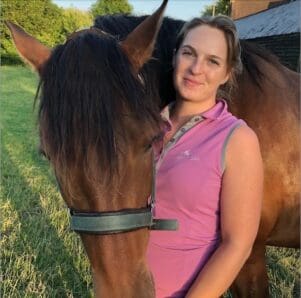
Briony Witherow
BSc MSc RNutr. PGCERT FHEA
A graduate of Aberystwyth University and the Royal Agricultural College, the early part of Briony’s career was spent in the commercial sector, as senior nutritionist at one of the UK’s major feed companies. Briony went on to achieve registered nutritionist status with the Association for Nutrition (AfN) and started her own equine nutrition consultancy, Practical Equine Nutrition. Based in Cambridge, Briony currently works as an equine nutritionist through her private consultancy and lectures in Equine and Animal Science at Writtle University College. Briony’s particular interests include, feeding for performance, breeding and to manage clinical issues along with grassland management. In her spare time, Briony has a PRE gelding which she rides and competes, and a Welsh section A which she drives.
ABOUT EQUINECTAR
Description
EquiNectar® is a natural feed supplement, that is scientifically proven to:
- Re-balance your horse’s gut bacteria
- Help your horse maximise benefits from its feed
- Improve your horse’s condition
More information
EquiNectar® is produced by Tharos Ltd in the UK. It is a natural source of digestive enzymes and contains only the following ingredients:
- Our patented enzyme rich malt extract
- Medium chain triglycerides (from coconut oil)
- Potassium sorbate
For more details of the enzymes within EquiNectar® take a look at the ingredients and enzymes page.
How to feed
Simply add EquiNectar® to your horse's daily feed, using the Feeding Rate chart to determine the correct amount.
For detailed instructions about how to introduce EquiNectar, please read the comprehensive Feeding Guide page.

